- Home
- Christie Golden
Before the Storm Page 21
Before the Storm Read online
Page 21
“Calia,” he began carefully, “you have been a tremendous help. And you aren’t a Stormwind citizen. If this plan does lead eventually to peace, you’ll be a hero of the Alliance.”
She smiled a touch ruefully. “Thank you, but I don’t consider myself a member of the Alliance. I’m a citizen of nowhere now except perhaps the Netherlight Temple,” she said. “I go where the Light wills me. I truly believe this is the right path toward mending other, greater rifts.”
Anduin couldn’t let it go without making absolutely certain. Too much was at stake. “The kingdom of Lordaeron is your birthright. Few would be willing to let go of such a title and the power it would grant them,” he pressed. “I understand your reasoning, but many do not. You may have some nationalist champions rising, ready to take the city in your name.”
Suddenly her expression grew thoughtful, and she searched his eyes. “Would you be among them, Anduin? Is that why you ask? Would the king of Stormwind make war on the Horde, scour the Undercity, to grant the queen of Lordaeron her empty kingdom?”
The throne was hers by every right. Yet was it worth war should she express a desire to claim it? She saw the struggle on his face and put a hand on his.
“I understand. Don’t worry. Those who currently inhabit Lordaeron lived there in life. The Forsaken are the true heirs. It belongs to them now. The best I can do for those whom I would have ruled is exactly what I’m doing. I’ve found peace and a calling where I can really matter. That’s more important than a bloodied crown.”
“Sacrificing peace and a calling is usually the price of a crown,” Anduin said.
“You have not let it be so. Stormwind is fortunate to have you. But if you truly wish to thank me, I have a favor to ask. Of both you and the archbishop. I’d like to participate in the Gathering.”
Anduin frowned slightly. “I don’t think that is wise,” he said. “There may be those who recognize you. It could be dangerous. It could be…misconstrued.” It could, in fact, lead to war.
“If any of the Forsaken do recognize me, it will give me the chance to show that I bear them no ill will,” she countered. “That I have no desire to run them out of the place that’s been their home for so long. I want them to stay there. I want them to be safe.”
Anduin watched her carefully, taking a breath and centering himself. Light—let me know if she means them harm. He felt no responding ache in his bones, no hint that Calia Menethil was planning some kind of murderous coup. Her intentions were in alignment with the Light they both served.
“I’ve already established a bond of trust with these people we’ve interviewed,” she continued. “And no one knows the archbishop better than I do.”
This was true. And no one knew her better than Faol. “I will speak with the archbishop,” Anduin said at last. “If he is agreeable, then I am, too.”
Calia beamed at him. “Thank you,” she said. “It means more than you know.”
There was one last thing he felt compelled to say. “I have a question, and it’s important that I know the answer.”
Her golden hair, as golden as that of Arthas, as golden as his own, fell in a bright sheet to hide her face as she looked down. Her voice was small when she spoke.
“I trust you, Anduin,” she said. “If you feel you must know the answer, then ask it.”
He took a deep breath.
“Calia…Is there a child? Do you have an heir?”
The unspoken words hung between them, heavy and sad, and Anduin knew the answer before she gave it.
“There was a child,” Calia Menethil said so softly that he had to strain to hear her. It was enough, but Anduin waited to see if she was ready to tell her story. Just as he drew breath to change the subject, she began to speak.
“You must understand…my father was ordinarily a kind and understanding man, but on this one thing he was firm. He was to choose the man I was to marry, and I was to agree to it.”
Her sorrowful sea-green eyes lifted from the clasped hands in her lap. “I have made many mistakes and poor choices in my life. Everyone has, but as royalty, our decisions matter more than those of others because they affect so many more people. You may feel that you have to find a queen, have an heir. Your advisers will want you to make a good political match. Others might be able to live with such things. But not people like us. Promise me this, Anduin: whatever anyone tells you to do, don’t marry if your heart doesn’t tell you to.”
Her face was fierce but still beautiful and haunted, and her words struck him with the power of truth. Even so, Anduin knew that in the end he would have to do what was best for his kingdom.
“I cannot make a promise I may not be able to keep,” he said, “but for what it’s worth, I share your feelings on this matter.”
“We all do what we must,” Calia said. “I was not the direct heir. I don’t have your responsibilities. If I had, I might have agreed without protest. But Arthas was the heir, the firstborn son, and as he grew up, Papa began to focus more on him. It seemed as though he and Jaina would be a perfect couple—a love match as well as a sound political one. At least until Arthas somehow decided that it wasn’t perfect.”
She paused, then looked up at him. “Jaina…I’ve been afraid to ask you. Is she…”
“She’s alive,” Anduin hastened to reassure her. “We don’t know where she is, but she can take care of herself.” He did not tell her of Jaina’s struggles or of her apparent abandonment of the Alliance. Calia had enough sorrows on her heart. Anduin had no desire to add to them unless she inquired.
His words seemed to be enough for her. She smiled, her eyes distant, and said, “I’m glad. She was dear to me when we were younger. When the world was less cruel than now. And with what Arthas…became…I am deeply glad she was not wed to him.
“But while Father’s eye was on my brother, I conducted my own quiet rebellion. I fell in love with someone Father never would have approved of: one of the footmen. We stole what moments we could, and once, in the dark of night, we slipped away and begged a priestess to marry us. She refused at first, but we persisted. We came to her again and again, my sweet love and I, and at last, with the Light’s blessing, we were wed.”
Her hand fell to her belly, flat now but once rounded with child. “When I was certain that I was carrying, I confided in Mother. Oh, she was furious with me! But she could tell by my face that this was a true love, and I assured her my child would be legitimate. Father was too caught up in Arthas to make much objection when my mother and I went on a ‘long rest’ to more remote parts of the kingdom.”
Calia’s hand ceased to move on her abdomen, and both hands curled into fists. “I got to hold my beautiful little girl and tend to her for a few weeks before it was decided that my husband would raise her, away from Lordaeron and ignorant of her birthright. Mother promised that when the time was right—when Arthas had finally married and produced an heir—we could acknowledge my daughter and perhaps elevate my husband to a nobleman’s status so that her name would be unsullied.
“That day never came. But the Scourge did.”
Anduin listened, his heart full of sympathy. Calia was describing being sold off like livestock to the highest bidder. She’d rebelled, fallen in love, and conceived a child. A daughter. For a brief moment, Anduin wondered what a daughter or a son of his would look like. Regardless of appearance or gender, that babe would rule one day…and until then would be deeply loved.
“I don’t remember much of that time. I remember lying in a ditch while the Scourge passed above me. I believe to this day it was thanks to the Light that they never found me. I made my way to Southshore, where my husband and child had been hidden away. We all three wept when we were reunited. But it was not to last.”
No. Not a second time. Anduin reached for one of her fisted hands. For a moment, it was tense beneath his, and then, slowly, the fist unclenched
as Calia allowed her fingers to entwine with his.
“You don’t have to say anything else, Calia. I’m sorry I troubled you.”
“It’s all right,” she said. “I’ve started now. I think I want to finish.”
“Only if you wish,” he assured her.
She gave him a faint smile. “Maybe if I tell someone, the nightmares will stop.”
Inwardly, he winced; he had no response to that. She continued. “No one recognized me. Everyone assumed I was dead. We were happy for a time. And then came the blight. We ran. I wasn’t about to leave my family again, but in the crowd we were separated. I stood in the middle of the street, screaming for them. Someone took pity on me, pulling me onto his horse and galloping past the limits of the town barely in time.
“There was a cluster of refugees in the forest. So many of us waited, desperate for word of our loved ones. Sometimes prayers were answered, and there were reunions that were…” Calia bit her lip. “I prayed that my family, too, would be spared. But…” Her voice trailed off. “I never saw them again.”
And then, with a realization that stopped his breathing with shock, Anduin understood why Calia had decided to befriend the Forsaken. Why, instead of seeing them as the destroyers of her city, her way of life, and all her family, she had chosen to identify with them.
“You’re hoping that your husband and child, too, became Forsaken instead of dying as Scourge,” he said softly. “You’re hoping you’ll get word of them at the Gathering.”
Calia nodded, wiping at the tears on her face with one hand. The other remained clasped with the young king’s. “Yes,” she said. “It wasn’t until I met the archbishop that I started to understand that the Forsaken weren’t monsters. They were just…us. The same people you and I would be if we had been killed and given a different sort of life.”
“You don’t know if your family would have been like that,” Anduin cautioned. “They could have been driven mad or turned cruel. It might be devastating for you to see them.” Genn’s words to Fredrik came back to him now even as he spoke.
“I know. But I have to hold out for the chance. Isn’t that what the Light is all about, Anduin? Hope?”
Anduin’s mind went back to the trial of Garrosh Hellscream. When that orc had executed his escape, he had done so thanks to the chaos sown by an unexpected attack on the temple. In that battle, Jaina had been severely wounded.
No, he corrected himself. She had been dying.
So many tried to heal her, both Alliance and Horde. But the wound was too much. Anduin remembered kneeling on the cold stone floor of the temple, watching Jaina’s labored breathing and seeing red bubbles form on her lips, his hands on her bloodied robe. Please, please, he had prayed, and the Light had come. But he, like the others, was exhausted. And the Light he had called would not be enough to save her.
He remembered others telling him to come away, that he’d done all he could. But he stayed there in those bleak, impotent moments before the death of this woman he’d loved as an aunt. No, he had told those who wanted him to walk away. I can’t.
And then the voice of his teacher—Chi-Ji, the Red Crane. And so, the student remembers the lessons of my temple.
Anduin quoted Chi-Ji’s words to Calia now. “Hope is what you have when all other things have failed you,” he said. “Where there is hope, you make room for healing, for all things that are possible—and some that are not.”
Her eyes shone, and she gave him a tremulous smile. “You understand,” she said.
“I do,” he said. “And I know that having you participate in the Gathering is the right thing to do.” As he spoke, he felt warmth and calmness steal through him. That warmth passed through their clasped hands to Calia, and he saw the lines around her eyes and mouth lessen, her body relax.
Whatever betided, this act of kindness was the right thing. Anduin had to hope that they would not pay too dear a price for it.
TANARIS
The team of goblin engineer and gnome mineralogist picked up their pace. Saffy grilled Grizzek on everything he knew about his “boss,” and it killed him to watch her face, normally so bright and cheerful—especially recently—grow darker and more withdrawn. Sometimes Grizzek bridled at how his people were regarded or, more accurately, reviled. Not all goblins were out to sell dangerous things at ludicrous prices. There were some who were even well regarded: Gazlowe, who operated out of Ratchet, south of Orgrimmar, came to mind.
But Jastor Gallywix epitomized the worst that could possibly be said about goblins. He was cunning, selfish, arrogant, completely ruthless, and unburdened by remorse. He’d even sold his own people into slavery right after the Cataclysm hit, for crying out loud. Grizzek and his darling Punkin had become so engrossed in the breathtaking magnificence of Azerite that they’d lost sight of what surely was at the heart of Gallywix’s desire to learn about it: its ability to kill anyone that goblin chose.
“This is all my fault,” Grizzek said at one point, more miserable than he’d ever been in his life. “I should never have trusted Gallywix to keep his promise. Should have known he’d want me to make weapons. And worst of all, I should never have dragged you into this. I’m so sorry.”
“Hey,” Saffy said, slipping into his arms and snuggling against his sunken green chest. “While I cannot approve of your methods, I’m glad we’re working together on this. You were right. You knew I’d want to be involved. I may have come here kicking and screaming—literally—but I stayed because I wanted to. And because—”
Grizzek caught his breath. Was she going to say—
“Because I’m glad that we found each other again. This Azerite is powerful stuff. Its natural state is toward growth and healing. Maybe even Gallywix will understand that it’s much better to put it to those kinds of uses.”
“Pookie,” he said, “he’s a goblin. We like to blow things up.”
She was, of course, unable to deny the truth in this. “Well,” she hemmed, “building and healing are just as important as destroying and killing.”
Sapphronetta was so naive. And he loved her so much for it.
By the time Gallywix showed up, all big belly, big attitude, and big smiles, they were ready.
“Trade Prince,” Grizzek said, “please allow me to introduce my lab partner: Sapphronetta Flivvers.”
Saffy dropped a curtsy, which looked ridiculous but endearing as she was wearing overalls and clunky boots. Gallywix appeared charmed.
“Delighted, delighted,” he boomed in his abrasive, raspy voice, taking her hand and pressing his lips on it. Saffy turned pale but did not pull away. “You were worth every copper to kidnap, my dear, and I haven’t even seen your work yet.”
“Uh…thanks,” she said. Her eyes narrowed, and it was obvious she wanted nothing more than to deck him, but again she refrained from actions that probably would result in their imprisonment and/or execution.
“We’ve been working on a variety of things,” Grizzek began, but Gallywix cut him off.
“Lots of weapons, I hope,” Gallywix said as he trundled through the door into the courtyard. “Our warchief is extremely interested in things that go boom. And I told her, ‘Warchief,’ I says, ‘don’t you worry, honey. I got the best guy who makes things go boom.’ ”
“Actually,” Saffy said, forcing a smile, “goblins already excel at making things go boom. What we’ve been working on is much more valuable.”
They led him inside to the lab. Arranged with an eye to impress were all their labors of love. They proceeded to put the items through their paces as Gallywix watched, his tiny eyes fixed hungrily on the Azerite.
First they shared the wearable items: the jewelry and trinkets. “We got our inspiration from you,” Grizzek said. “Your cane was the very first adornment made of Azerite!” Gallywix beamed and petted the glowing golden orb under discussio
n. Saffy discussed the properties of the various trinkets, and Grizzek brought out the armor they’d crafted.
“Holy smokes,” Gallywix exclaimed as he watched the armor take minute after minute of direct fire from the Lightning Blast 3000. Next up was Crunchy’s demonstration. Grizzek had rebuilt the damaged hand and winced afresh as yet again it was destroyed when the modified shredder tried to crush a lump of Azerite.
“My, my!” Gallywix said. “That’s tough stuff.”
“Think of the building material you could make from it,” Saffy said. “It would withstand fires, earthquakes—”
“Think of the shredders we could make!”
“Er…yes. Let’s move on.” Next, Saffy demonstrated what Grizzek referred to as her “best parlor trick” of neutralizing poison and licking it off her hand.
“You won’t need to craft specific antidotes,” she said. “Just carry around some of this and keep it liquid, and no matter the poison, it’s no longer a problem!”
“Ha ha! When we use it, poison is never a problem!” All of Gallywix’s chins and his belly, too, jiggled with his guffaws.
Grizzek was starting to feel sick to his stomach. His poor Saffy was looking as if she felt the same way.
By the end of the demonstrations, Gallywix was not looking very happy. “I asked you for weapons,” he said. “Specifically. By name.”
“Ah, yeah,” Grizzek said. “About that. We, ah—”
“Some things could be modified into weapons,” Saffy said, startling Grizzek. “But I highly urge you not to do so. What we’ve shown you could save lives. Horde lives.” That admission was hard for her, but she persevered. “You can build structures that the Alliance can’t attack. You can extend lives, heal wounds, save people who otherwise might have died. This helps the Horde. You don’t need weapons.”
Gallywix sighed and looked at Saffy with an expression that was almost kind and nearly respectful.

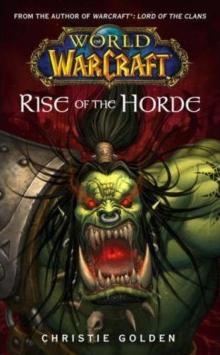 Rise of the Horde
Rise of the Horde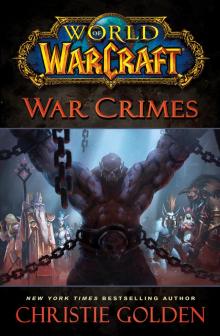 World of Warcraft: War Crimes
World of Warcraft: War Crimes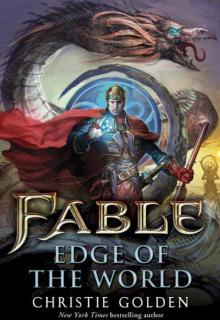 Fable: Edge of the World
Fable: Edge of the World Homecoming
Homecoming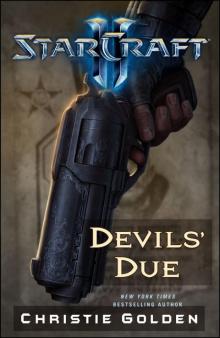 StarCraft II: Devil's Due
StarCraft II: Devil's Due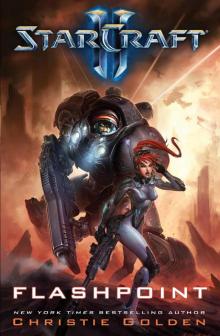 Starcraft II: Flashpoint
Starcraft II: Flashpoint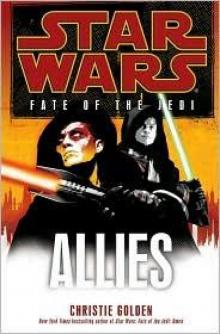 Allies
Allies Shadow Hunters
Shadow Hunters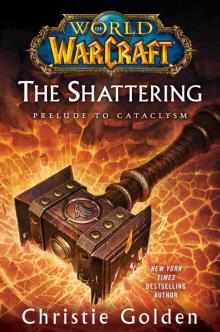 The Shattering: Prelude to Cataclysm wowct-1
The Shattering: Prelude to Cataclysm wowct-1 STAR TREK: VOY - Homecoming, Book Two - The Farther Shore
STAR TREK: VOY - Homecoming, Book Two - The Farther Shore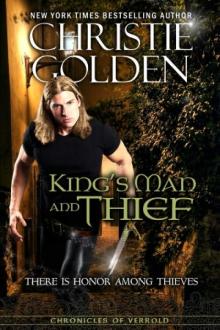 King's Man and Thief
King's Man and Thief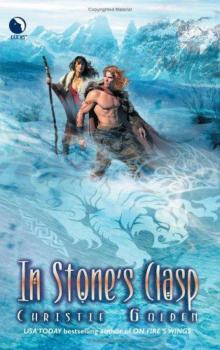 In Stone's Clasp
In Stone's Clasp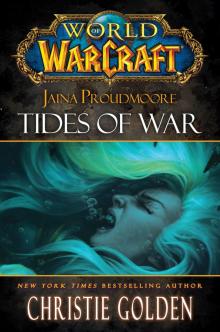 Jaina Proudmoore: Tides of War
Jaina Proudmoore: Tides of War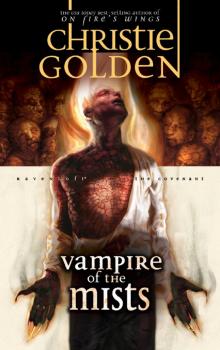 Vampire of the Mists
Vampire of the Mists Star Wars: Fate of the Jedi II: Omen
Star Wars: Fate of the Jedi II: Omen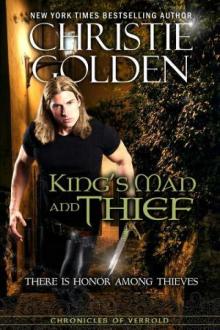 King's man and thief cov-2
King's man and thief cov-2 Star Trek
Star Trek StarCraft: Dark Templar: Twilight
StarCraft: Dark Templar: Twilight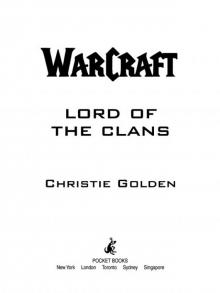 Lord Of The Clans
Lord Of The Clans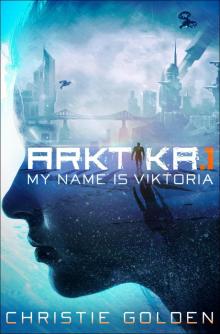 ARKTIKA.1 (Short Story)
ARKTIKA.1 (Short Story)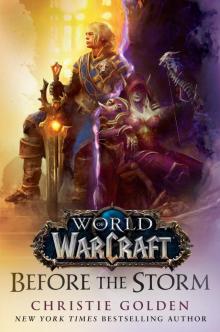 Before the Storm
Before the Storm STAR TREK: VOY - Homecoming, Book One
STAR TREK: VOY - Homecoming, Book One Shadow of Heaven
Shadow of Heaven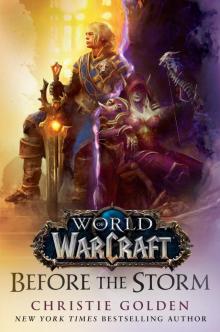 Before the Storm (World of Warcraft)
Before the Storm (World of Warcraft) Warcraft Official Movie Novelization
Warcraft Official Movie Novelization Flashpoint
Flashpoint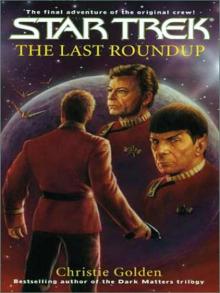 STAR TREK: The Original Series - The Last Roundup
STAR TREK: The Original Series - The Last Roundup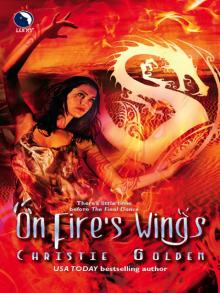 On Fire’s Wings
On Fire’s Wings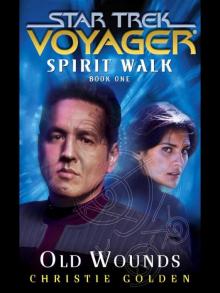 Spirit Walk, Book One
Spirit Walk, Book One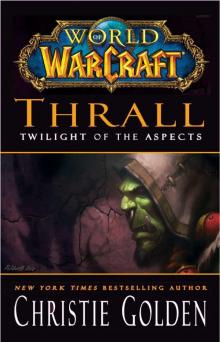 Thrall Twilight of the Aspects
Thrall Twilight of the Aspects Valerian and the City of a Thousand Planets
Valerian and the City of a Thousand Planets Warcraft
Warcraft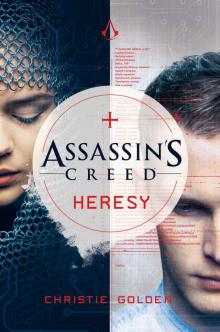 Assassin's Creed: Heresy
Assassin's Creed: Heresy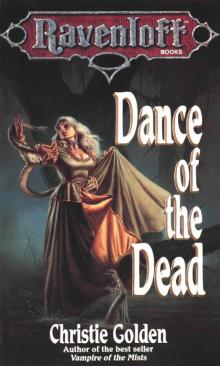 Dance of the Dead
Dance of the Dead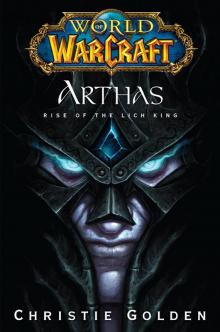 Arthas: Rise of the Lich King wow-6
Arthas: Rise of the Lich King wow-6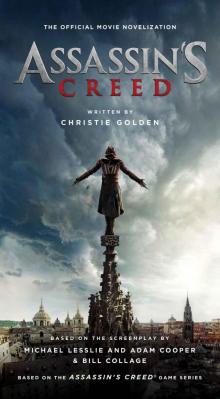 Assassin's Creed: The Official Movie Novelization
Assassin's Creed: The Official Movie Novelization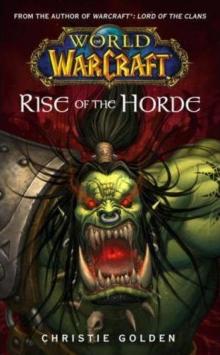 Rise of the Horde wow-2
Rise of the Horde wow-2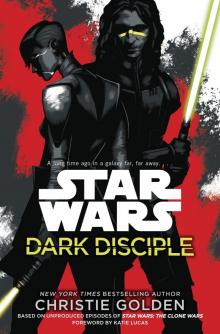 Dark Disciple
Dark Disciple Ghost Dance
Ghost Dance The Shattering
The Shattering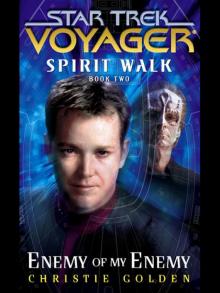 Spirit Walk, Book Two
Spirit Walk, Book Two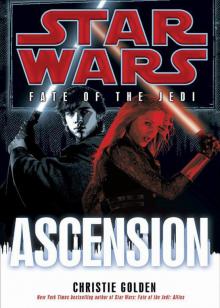 Star Wars: Fate of the Jedi: Ascension
Star Wars: Fate of the Jedi: Ascension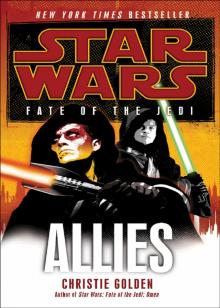 Star Wars: Fate of the Jedi V: Allies
Star Wars: Fate of the Jedi V: Allies The Enemy Within
The Enemy Within Kindred Spirits
Kindred Spirits The Farther Shore
The Farther Shore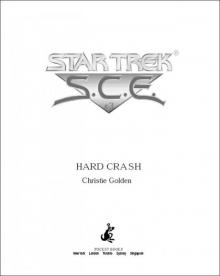 Star Trek: Hard Crash (Star Trek: Starfleet Corps of Engineers Book 3)
Star Trek: Hard Crash (Star Trek: Starfleet Corps of Engineers Book 3) Twilight
Twilight